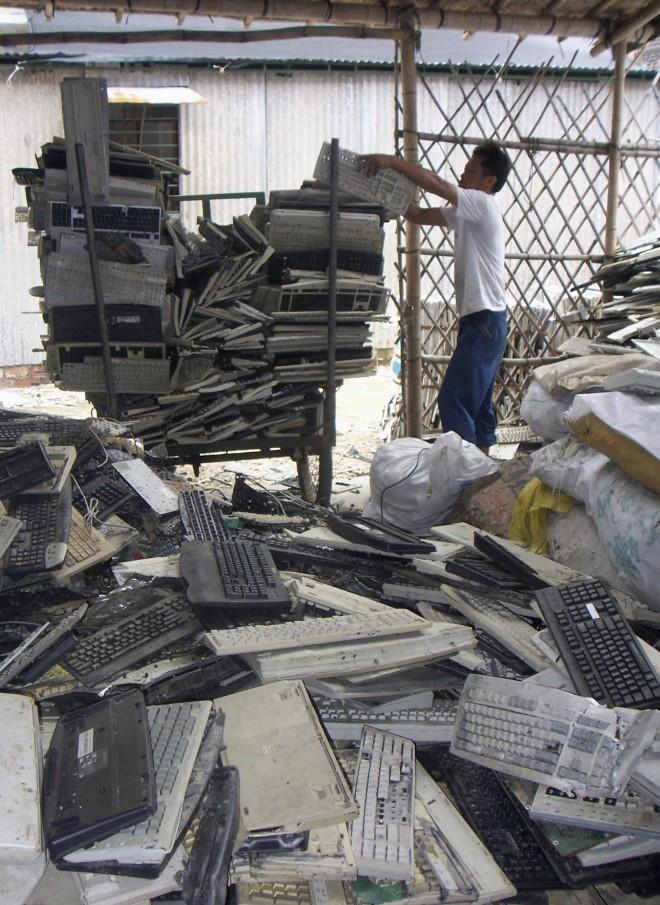 |
| A labourer works at an electronic recycling plant in Guiyu, southern China's Guangdong province. Workers shift through piles of broken old computer parts in acrid smelling shacks, smelting down parts with crude equipment to extract valuable metals like gold and copper. |
Used electronics are full of toxic compounds, as well as precious metals. Recycling them can be big business. But the used equipment is often shipped to developing nations where people are exposed to the very toxins that developed nations want to be rid of.
Bernd Simoneit is a professor at Oregon State University, and he recently completed a research project in China. Much of his career he has focused on finding the chemical "signatures" of toxins in the air. In this case he was working with the Chinese Academy of Sciences to test the environments of workers who recycle used electronics in the city of Shantou, in Guangdong province.
What he found in one city was a room with pot-bellied stoves, just hot enough to melt the solder on a circuit board. Workers would recover the solder, which is often full of tin and lead, both metals worth selling. The reusable portions of the circuitry would then be taken out. The heat releases a variety of chemicals into the air, such as flame retardants, heavy metals, and organic pollutants. Some of those chemicals are carcinogens."They are using simple pot-bellied stoves," Simoneit said. "They are burning bricks of coal."
Chinese companies use such primitive methods because labor is cheap there, he says, and in developing nations recycling is often a cottage industry. He adds that in many Chinese cities, coal is a cheap fuel -- in some places near mines it is even free. That combination discourages investment in machinery. In addition, the recycling provides jobs.
Simoneit says he is working with the Chinese scientists on analyzing the samples they have and determining how much harm it does to the workers. He plans similar projects in India.
Simoneit notes that China is not the worst place for this kind of work. In Africa, children are often set to work to extract the copper from power cords-by burning them. "It's like the smoke from tires," he said. "When you are growing and breathing this stuff it isn't good for your development." (International Business Times)





